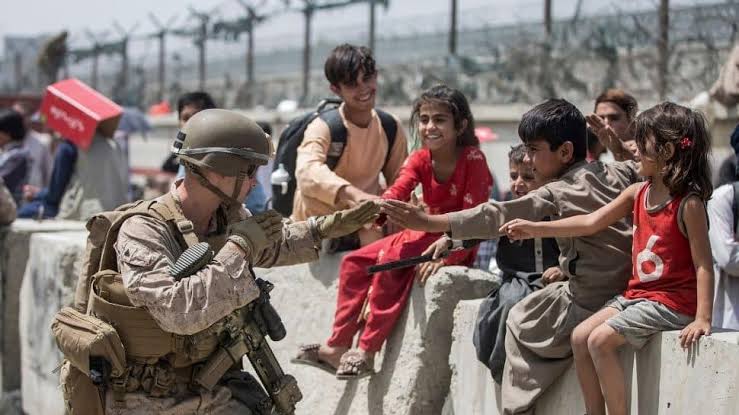
The United Nations is seeking to raise more than $600m (£434m) in aid for Afghanistan, warning the country is facing a major humanitarian crisis.
The plea for global support was made at a conference in Geneva, and followed the Taliban’s takeover last month.
“After decades of war, suffering and insecurity, they [Afghans] face perhaps their most perilous hour,” Secretary-General Antonio Guterres said.
The UN says the $606m target will bring “vital relief” to millions.
In his opening remarks, Mr Guterres called the humanitarian crisis in Afghanistan a “looming catastrophe”, and said people there were in desperate need of a lifeline.
“Today one in three Afghans do not know where their next meal will come from, the poverty rate is spiralling and basic public services are close to collapse.
“Hundreds of thousands of people have been forced to flee their homes and at the same time Afghanistan faces a severe drought – the second to hit the country in four years. Many people could run out of food by the end of this month just as winter approaches,” he warned.
The UN has appealed to the Taliban to give aid workers unimpeded access.
Even before the Islamist militants retook control of Afghanistan in August, fighting forced more than 550,000 people to flee their homes.
An estimated 3.5 million people are currently internally displaced within the country. Afghans have also had to deal with a severe drought.
The conference on Monday was attended by top UN officials as well as aid organisations including the Red Cross and various governments.
About a third of the money the UN is seeking to raise would be used by its World Food Programme (WFP), which earlier said many Afghans did not have access to cash to afford sufficient food.
“We are quite literally begging and borrowing to avoid food stocks running out,” WFP deputy regional director Anthea Webb told Reuters news agency.
Countries responded to the UN plea with pledges of aid for Afghanistan. But officials also voiced concerns over Taliban abuses.
UN human rights chief Michelle Bachelet warned of a “new and perilous phase” for Afghanistan, as she accused the Taliban of contradicting its own public promises on human rights.
She cited “multiple” allegations of Taliban forces conducting house-to-house searches for former officials, and said women had been “progressively excluded” from public life.
In a statement echoed by other officials, German Foreign Minister Heiko Maas said respecting basic rights would be a “benchmark… in determining our future engagement with a new Afghan government – including for possible development assistance”.
Meanwhile, the UN High Commissioner for Refugees Filippo Grandi tweeted that he had arrived in Kabul on Monday to “assess the country’s acute humanitarian needs”.
Thousands of people have fled Afghanistan since the Taliban took control of Kabul on 15 August following a rapid offensive.
On Monday, a special Pakistan International Airlines flight arrived in Kabul to take passengers to Islamabad.
“I will come back here only if the situation allows women to work and move freely,” one 35-year-old evacuee told AFP news agency.
In a separate development, Abdul Ghani Baradar, the Taliban co-founder and new deputy prime minister of Afghanistan, issued an apparent audio statement after reports that he had died spread on social media.
“I have been away on trips,” he said in the clip. “Wherever I am at the moment, we are all fine, all my brothers and friends.”
The BBC has not been able to verify the recording, which was posted on a number of official Taliban websites.
BBC News

